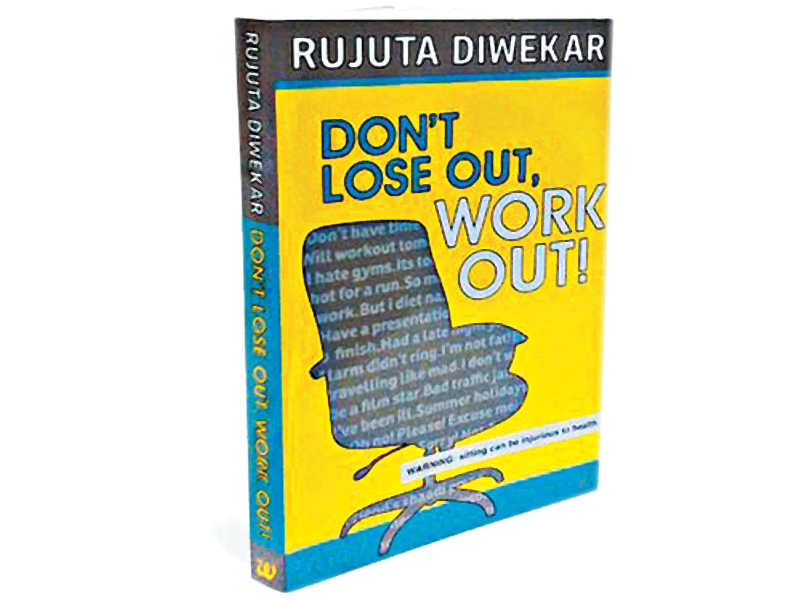
All of them have been through months of rigorous physical training and a strict diet under one of India’s most renowned fitness and nutrition experts, Rujuta Diwekar. And with her book Don’t Lose Out, Work Out!, Diwekar lays out the ‘science’ of working out and staying fit for her readers.
Even though Don’t Lose Out, Work Out! is a self-help book, it delves into the nitty gritty details of physical training and an appropriate diet regime in a personal tone, without sounding too technical or clinical. The book tackles cardio, strength training and yoga separately, highlighting the importance of each and its ins and outs. The author even includes workout schedules involving different parts of the body for readers to follow.
Interestingly, Diwekar debunks many workout myths — from those about walking to lifting weights and even extreme workouts. For example, I always thought weight training makes you bulky, but in fact it makes your body a better fat-burning machine. She also repeatedly asserts the importance of an appropriate diet plan accompanying the workout. The reader will find very useful tips on pre and post-workout meals — the most common reason why many fail to meet their health and fitness goals. Many people eat erratically, especially before and after workout, which overturns any benefits derived from exercise. Diwekar will tell you what to eat and when — and how they benefit your health. Just a word of caution: you will need to come up with local variants of menu items like idli, poha, upma, sambhar, etcetera that Diwekar has recommended keeping in view her Indian readers.

Author Rujuta Diwekar.
Despite the book’s simple approach, there are parts, such as those about assimilation of nutrients by our bodies, how our body’s metabolism works or how exercise impacts our brain neurons and immune systems and what activities dehydrate us more and why, that nevertheless end up being too technical for a layman’s understanding.
My biggest peeve with the book, however, is that it only offers sessions at the gym as a means to achieving fitness. The author has no advice for people such as professionals who ostensibly are the target readers for this book, and who do not have the time or desire to hit the gym but would still like to be fit by playing a sport, or utilising their commute time, home or office space.
Yet for someone like Diwekar who is passionate about fitness, it is easy to see why she puts so much stress on following a regular exercise routine. “Just start exercising; that one day that you begin is a stepping stone to a lifelong commitment that you need to exercise,” she writes.
Samra Muslim is a digital marketing professional, an avid reader and a movie buff. She tweets @samramuslim
Published in The Express Tribune, Sunday Magazine, May 11th, 2014.
COMMENTS (2)
Comments are moderated and generally will be posted if they are on-topic and not abusive.
For more information, please see our Comments FAQ


1719660634-1/BeFunky-collage-nicole-(1)1719660634-1-165x106.webp)

1732276540-0/kim-(10)1732276540-0-165x106.webp)












The only thing one needs to be fit n healthy, is motivation and dedication! And that my dears cannot be achieved by reading books.
This is not possible, a lifetime of exercise for many desi people aka people from India or Pakistan or Bangladesh as they are so used to having a sedentary life, watching Jadoo dish tv or cable television in their leisure times or just picking up the phone or gossipy with their fellow countrymen or woman about other people. Also they could never give up their curries and roties either. And in particular if they wife or daughter or any female relative spends a lot of time at the gym they would get suspicious. The culture is not inducive to having a fit life.